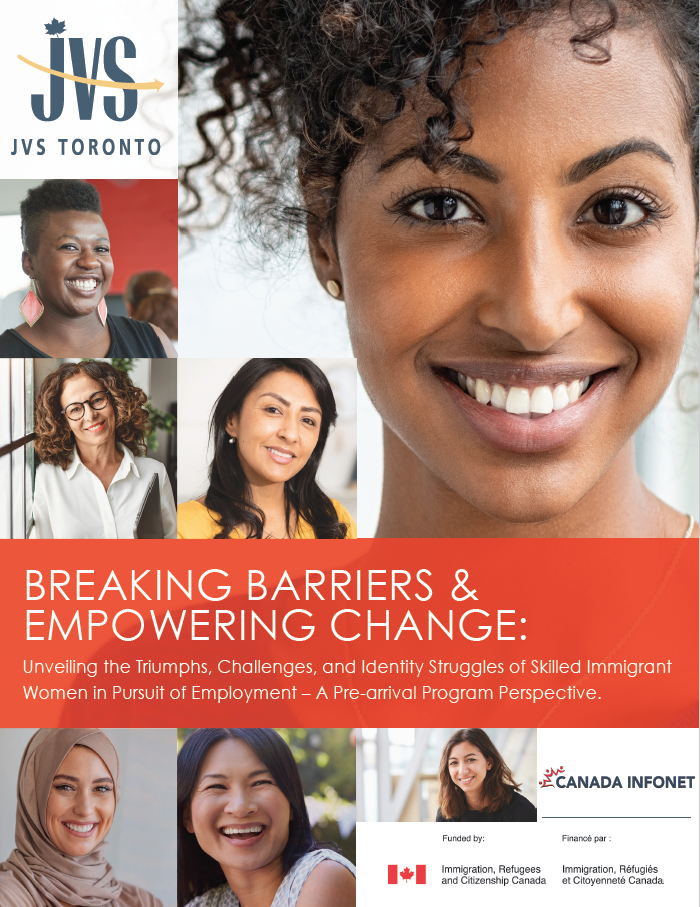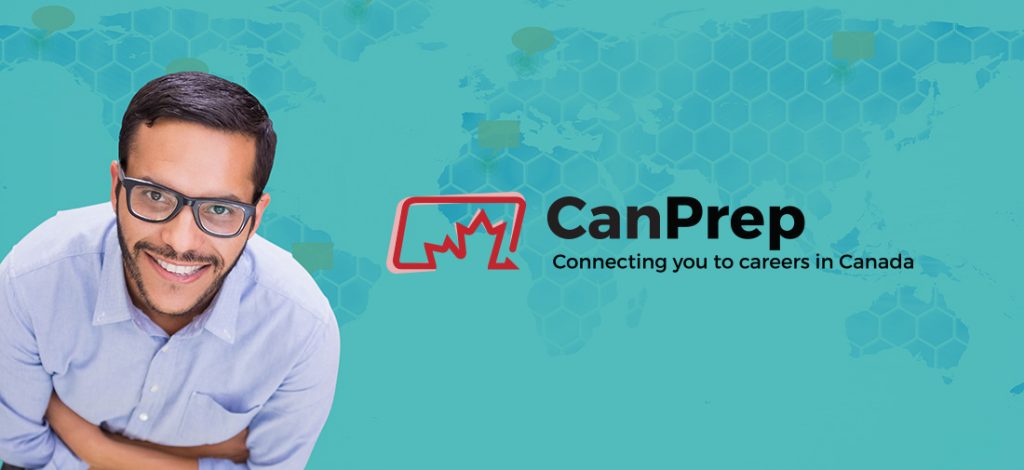
Between 2016 and 2021, a record number of 1.3 million newcomers permanently settled in Canada. In 2022, Immigration, Refugees and Citizenship Canada (IRCC) processed double the number of applications for permanent residence, temporary residence and citizenship compared to the previous year. These numbers, which are projected to keep growing, aren’t surprising considering Canada’s reputation of being an attractive immigrant destination due to its dynamic economy and multicultural population.
For newcomers to Canada, moving to a new country presents a wealth of exciting opportunities. However, it can also bring its fair share of challenges. For one, obtaining a job that fits one’s skills and experience can be an intimidating and challenging task. This may feel like an impossible hurdle in starting one’s professional career and life in a new country.
JVS Toronto offers programs and employment counselling to help newcomers overcome the common job-related challenges they may face in Canada, as listed below.
Insufficient Pre-arrival Information
Coming to Canada with a good understanding of what to expect can reduce the uncertainty that inevitably comes with settling into a new country.
Prior to entering Canada, it can help newcomers to seek as much information as possible about when to apply for jobs, what jobs they can apply for, and even the maximum number of hours they can work per week (if applicable). These factors differ depending on their immigration status in Canada as some may either be permanent or temporary residents (such as students and economic immigrants).
Lack of, or Difficulty Obtaining Canadian Work Experience
Newcomers may find themselves competing with job-seekers with more experience in the Canadian job market. Because some employers may place a higher value on local experience, this may leave newcomers struggling to secure their first job in Canada.
Fortunately, there are many opportunities to jumpstart one’s Canadian professional experience. For example, newcomers can take part in meaningful volunteer opportunities and internships, potentially in an industry relevant to their chosen professional path. Through these, newcomers can demonstrate their competence, reliability, and ability to thrive in a Canadian work environment.
Browsing online job boards and attending in-person job fairs are great ways to discover volunteer and internship opportunities.
Getting Foreign Experience and Education Recognized
There is no doubt many newcomers arrive in Canada with solid employment and educational credentials. They may certainly qualify for many open positions and academic opportunities; however, they may encounter difficulty in getting their prior work and school credentials recognized.
Looking into industry-specific licensing requirements in Canada is crucial, particularly for regulated professions. If applicable, newcomers should contact or consult the websites of licensing or regulatory bodies in their respective fields.
For professionally experienced newcomers looking to adapt their skills to Canada, short-term bridging programs are a great option. Many employment agencies like JVS Toronto and educational institutions offer these programs to equip newcomers from various professional backgrounds with confidence, updated skills and networking opportunities to help them secure jobs that fit their skills and experiences.
If considering further education, newcomers can research services that offer credential evaluation.
Limited Social and Professional Connections
For newcomers and long-time Canadian residents alike, establishing a strong professional network is essential for success in one’s employment search. They are tremendously helpful when considering a switch in industry, looking to join a new company, or exploring further education.
Because newcomers typically have fewer connections in Canada, they may feel limited in their options for career advancement. Fortunately, there are ways to address this, such as participating in networking events and job fairs organized by agencies like JVS Toronto.
Taking advantage of pre-existing connections, if available, such as family and friends in Canada is a great first option. Volunteering with local organizations may also be helpful in meeting other professionals.
Language or Communication Barriers
Language proficiency is a necessity for any kind of job. Lack of fluency in either English or French may make it difficult to get hired or severely limit newcomers’ employment options in Canada.
Many newcomers arrive in Canada proficient in English, French, or even both, and this definitely benefits them greatly in their job search and their performance in the workplace. However, language fluency does not guarantee an understanding of Canadian workplace culture, which may differ significantly from a newcomer’s country of origin. It’s possible that this may even lead to miscommunication in the workplace.
For newcomers looking to improve their language skills and knowledge of Canadian workplace terminology and culture, language classes can be beneficial and provide employers additional assurance of your language competency.
Lack of Understanding of the Canadian Job Market
Although there may be similarities in the recruitment and hiring processes between Canada and newcomers’ home countries, there are undeniable nuances that can vary from country to country. Therefore, it’s important to carefully research common practices in Canada. Optimizing job search strategies to meet Canadian standards can greatly impact one’s job search success.
One way to begin understanding the Canadian job market is to seek insights from any family and friends already in Canada. If this isn’t possible, there are also various community-managed online resources such as Facebook groups and other online forums for newcomers.
Newcomers may also consider consulting employment counsellors to receive individualized career support. Consider participating in job-related workshops to sharpen your resume and cover letter, interview skills, and job search tactics, among others.
Related: View JVS Toronto’s Workshop Calendar
While there are unique challenges newcomers face when seeking employment in Canada, there certainly are ways to address them. It is important to remain proactive and confident as you explore and prepare for your next professional steps in Canada.
We understand that starting your job search in a new country can be daunting, but we’re here to help! JVS Toronto offers a range of programs for newcomers to Canada to aid them in their employment search.
 In the rich tapestry of immigrant experiences, the narratives of skilled immigrant women often stand out for their resilience, ambition, and the unique challenges they face.
In the rich tapestry of immigrant experiences, the narratives of skilled immigrant women often stand out for their resilience, ambition, and the unique challenges they face. 




